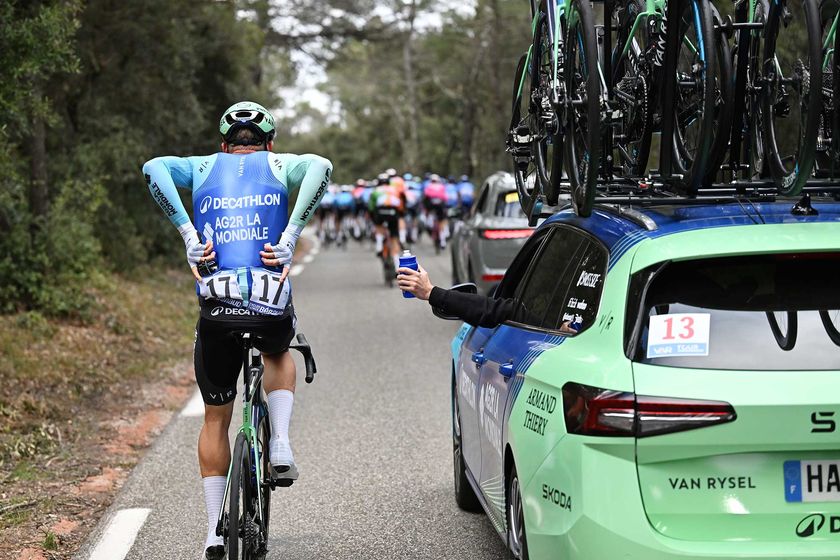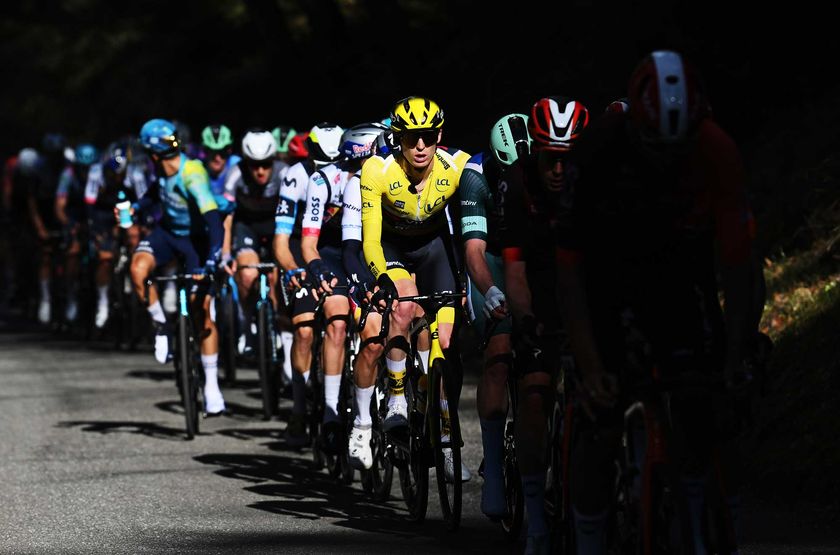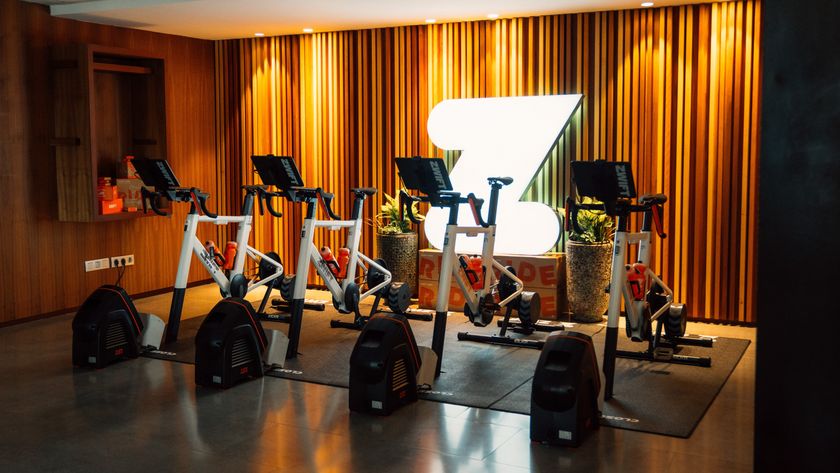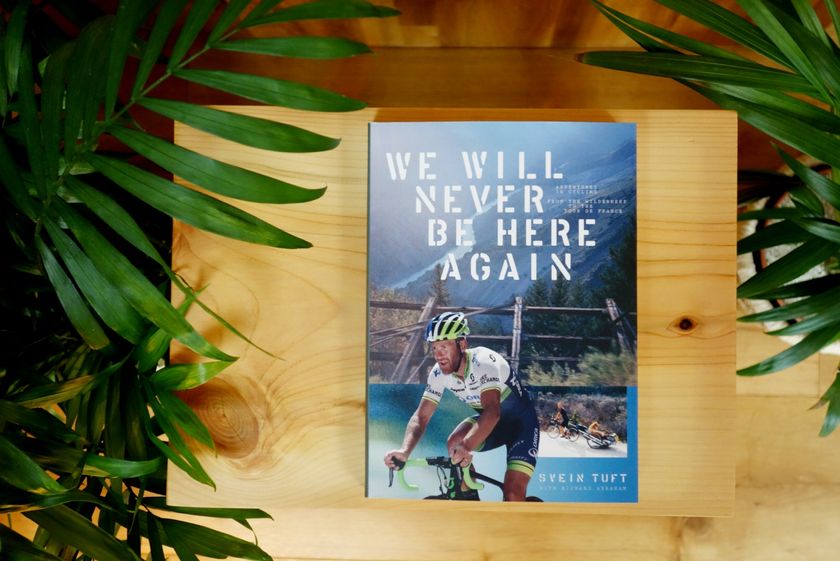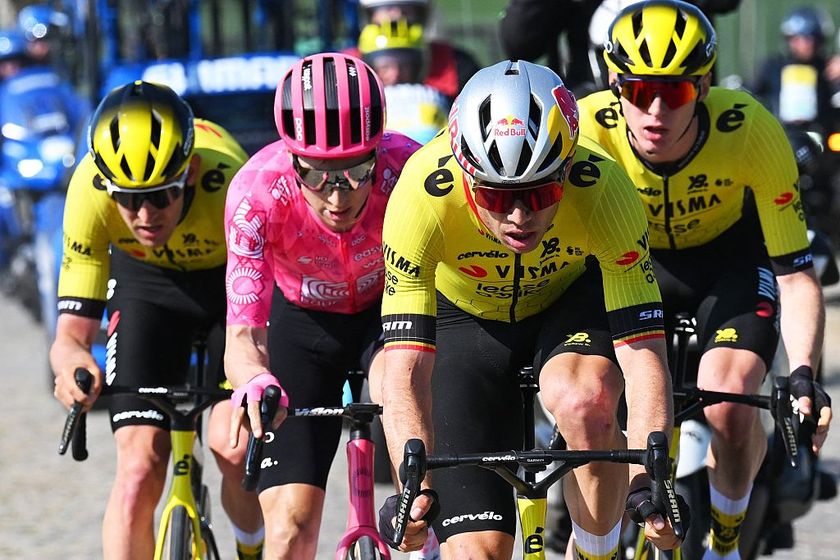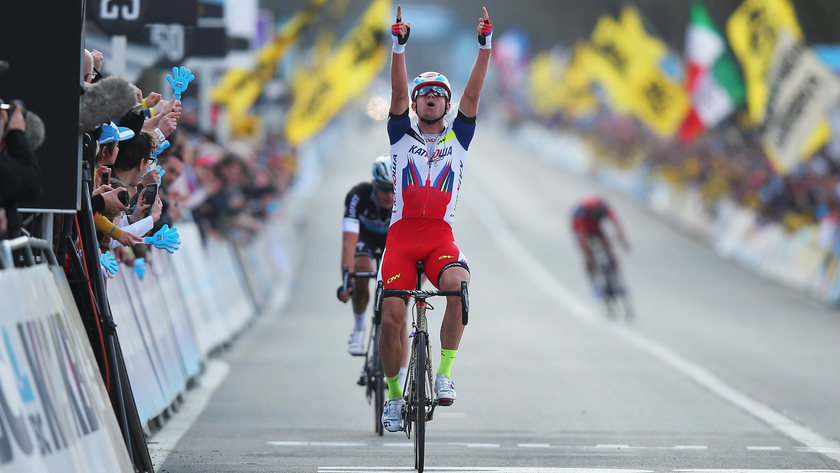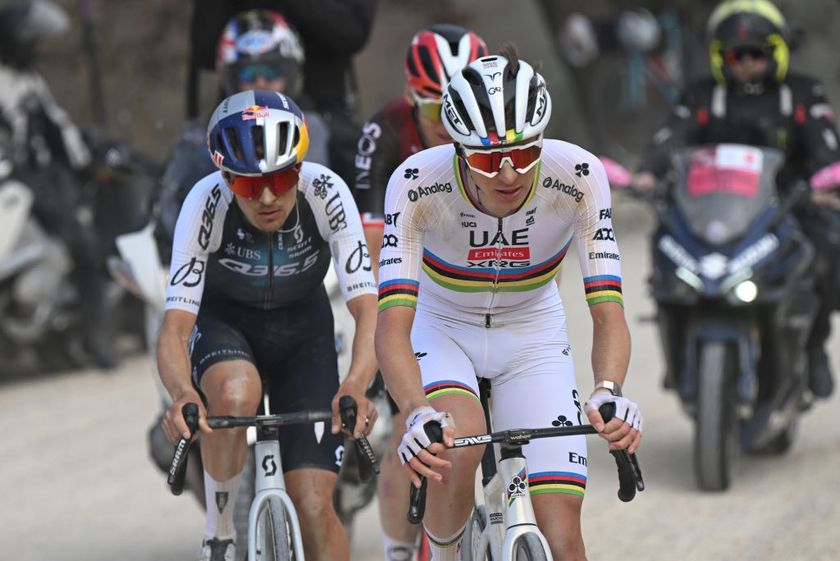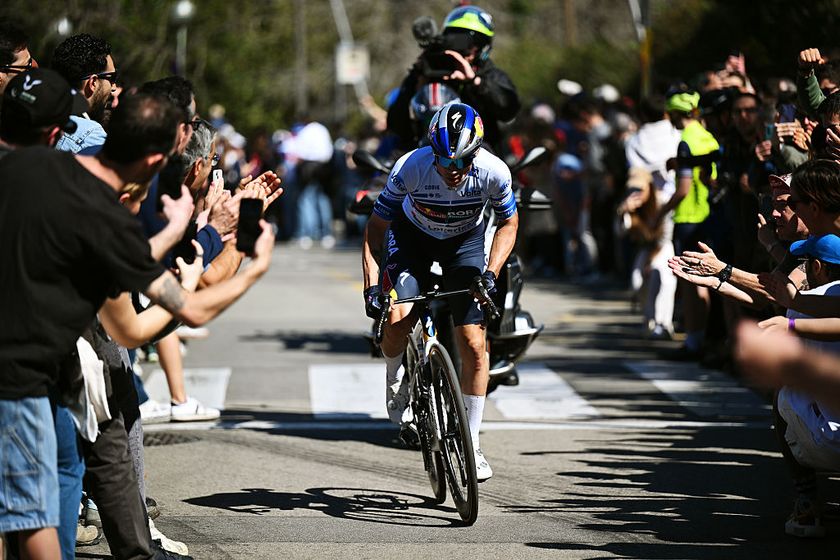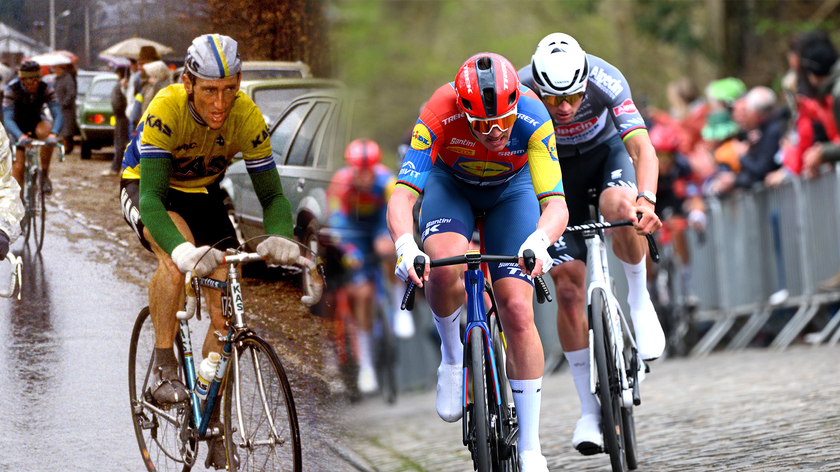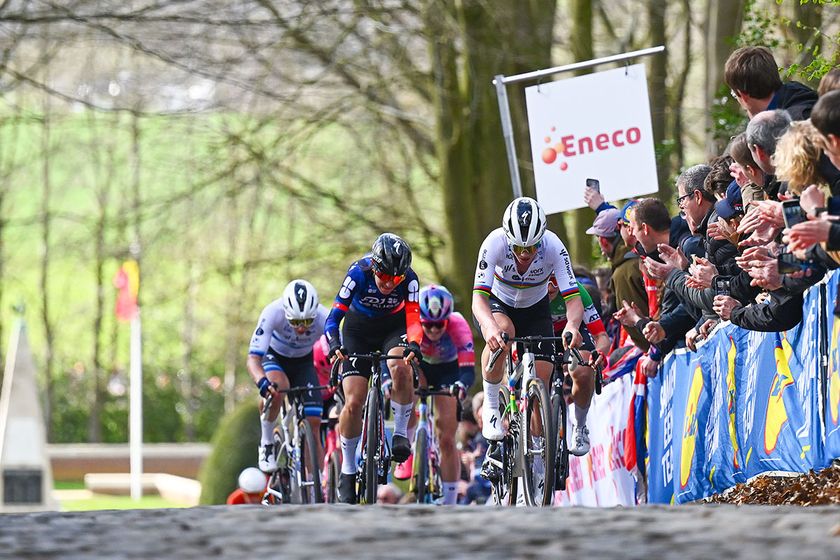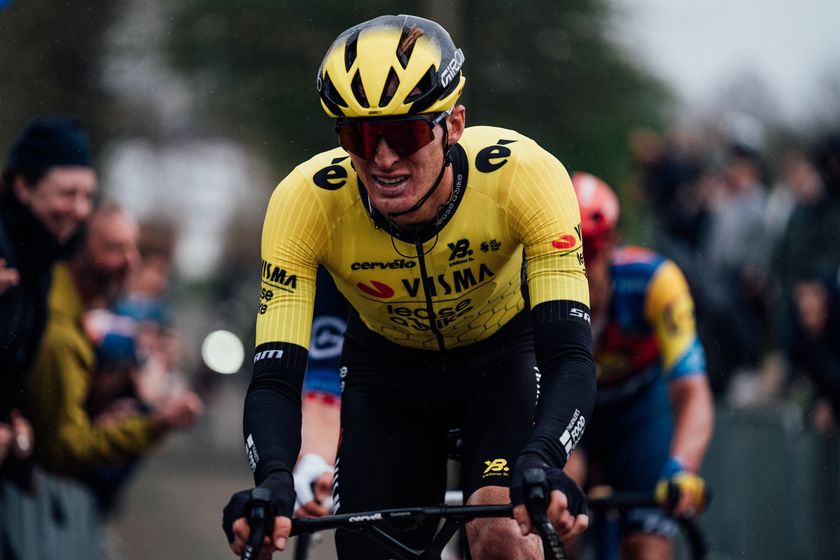Fitness questions and answers for December 19, 2006
Got a question about fitness, training, recovery from injury or a related subject? Drop us a line at...
Form & Fitness Q & A
Got a question about fitness, training, recovery from injury or a related subject? Drop us a line at fitness@cyclingnews.com. Please include as much information about yourself as possible, including your age, sex, and type of racing or riding. Due to the volume of questions we receive, we regret that we are unable to answer them all.
Carrie Cheadle, MA (www.carriecheadle.com) is a Sports Psychology consultant who has dedicated her career to helping athletes of all ages and abilities perform to their potential. Carrie specialises in working with cyclists, in disciplines ranging from track racing to mountain biking. She holds a bachelors degree in Psychology from Sonoma State University as well as a masters degree in Sport Psychology from John F. Kennedy University.
Dave Palese (www.davepalese.com) is a USA Cycling licensed coach and masters' class road racer with 16 years' race experience. He coaches racers and riders of all abilities from his home in southern Maine, USA, where he lives with his wife Sheryl, daughter Molly, and two cats, Miranda and Mu-Mu.
Kelby Bethards, MD received a Bachelor of Science in Electrical Engineering from Iowa State University (1994) before obtaining an M.D. from the University of Iowa College of Medicine in 2000. Has been a racing cyclist 'on and off' for 20 years, and when time allows, he races Cat 3 and 35+. He is a team physician for two local Ft Collins, CO, teams, and currently works Family Practice in multiple settings: rural, urgent care, inpatient and the like.
Fiona Lockhart (www.trainright.com) is a USA Cycling Expert Coach, and holds certifications from USA Weightlifting (Sports Performance Coach), the National Strength and Conditioning Association (Certified Strength and Conditioning Coach), and the National Academy for Sports Nutrition (Primary Sports Nutritionist). She is the Sports Science Editor for Carmichael Training Systems, and has been working in the strength and conditioning and endurance sports fields for over 10 years; she's also a competitive mountain biker.
Eddie Monnier (www.velo-fit.com) is a USA Cycling certified Elite Coach and a Category II racer. He holds undergraduate degrees in anthropology (with departmental honors) and philosophy from Emory University and an MBA from The Wharton School of Business.
Eddie is a proponent of training with power. He coaches cyclists (track, road and mountain bike) of all abilities and with wide ranging goals (with and without power meters). He uses internet tools to coach riders from any geography.
Get The Leadout Newsletter
The latest race content, interviews, features, reviews and expert buying guides, direct to your inbox!
David Fleckenstein, MPT (www.physiopt.com) is a physical therapist practicing in Boise, ID. His clients have included World and U.S. champions, Olympic athletes and numerous professional athletes. He received his B.S. in Biology/Genetics from Penn State and his Master's degree in Physical Therapy from Emory University. He specializes in manual medicine treatment and specific retraining of spine and joint stabilization musculature. He is a former Cat I road racer and Expert mountain biker.
Since 1986 Steve Hogg (www.cyclefitcentre.com) has owned and operated Pedal Pushers, a cycle shop specialising in rider positioning and custom bicycles. In that time he has positioned riders from all cycling disciplines and of all levels of ability with every concievable cycling problem.They include World and National champions at one end of the performance spectrum to amputees and people with disabilities at the other end.
Current riders that Steve has positioned include Davitamon-Lotto's Nick Gates, Discovery's Hayden Roulston, National Road Series champion, Jessica Ridder and National and State Time Trial champion, Peter Milostic.
Pamela Hinton has a bachelor's degree in Molecular Biology and a doctoral degree in Nutritional Sciences, both from the University of Wisconsin-Madison. She did postdoctoral training at Cornell University and is now an assistant professor of Nutritional Sciences at the University of Missouri-Columbia where she studies the effects of iron deficiency on adaptations to endurance training and the consequences of exercise-associated changes in menstrual function on bone health.
Pam was an All-American in track while at the UW. She started cycling competitively in 2003 and is the defending Missouri State Road Champion. Pam writes a nutrition column for Giana Roberge's Team Speed Queen Newsletter.
Dario Fredrick (www.wholeathlete.com) is an exercise physiologist and head coach for Whole Athlete™. He is a former category 1 & semi-pro MTB racer. Dario holds a masters degree in exercise science and a bachelors in sport psychology.
Scott Saifer (www.wenzelcoaching.com) has a Masters Degree in exercise physiology and sports psychology and has personally coached over 300 athletes of all levels in his 10 years of coaching with Wenzel Coaching.
Kendra Wenzel (www.wenzelcoaching.com) is a head coach with Wenzel Coaching with 17 years of racing and coaching experience and is coauthor of the book Bike Racing 101.
Steve Owens (www.coloradopremiertraining.com) is a USA Cycling certified coach, exercise physiologist and owner of Colorado Premier Training. Steve has worked with both the United States Olympic Committee and Guatemalan Olympic Committee as an Exercise Physiologist. He holds a B.S. in Exercise & Sports Science and currently works with multiple national champions, professionals and World Cup level cyclists.
Through his highly customized online training format, Steve and his handpicked team of coaches at Colorado Premier Training work with cyclists and multisport athletes around the world.
Brett Aitken (www.cycle2max.com) is a Sydney Olympic gold medalist. Born in Adelaide, Australia in 1971, Brett got into cycling through the cult sport of cycle speedway before crossing over into road and track racing. Since winning Olympic gold in the Madison with Scott McGrory, Brett has been working on his coaching business and his www.cycle2max.com website.
Richard Stern (www.cyclecoach.com) is Head Coach of Richard Stern Training, a Level 3 Coach with the Association of British Cycling Coaches, a Sports Scientist, and a writer. He has been professionally coaching cyclists and triathletes since 1998 at all levels from professional to recreational. He is a leading expert in coaching with power output and all power meters. Richard has been a competitive cyclist for 20 years
Andy Bloomer (www.cyclecoach.com) is an Associate Coach and sport scientist with Richard Stern Training. He is a member of the Association of British Cycling Coaches (ABCC) and a member of the British Association of Sport and Exercise Sciences (BASES). In his role as Exercise Physiologist at Staffordshire University Sports Performance Centre, he has conducted physiological testing and offered training and coaching advice to athletes from all sports for the past 4 years. Andy has been a competitive cyclist for many years.
Michael Smartt (www.cyclecoach.com) is an Associate Coach with Richard Stern Training. He holds a Masters degree in exercise physiology and is USA Cycling Expert Coach. Michael has been a competitive cyclist for over 10 years and has experience coaching road and off-road cyclists, triathletes and Paralympians.
Kim Morrow (www.elitefitcoach.com) has competed as a Professional Cyclist and Triathlete, is a certified USA Cycling Elite Coach, a 4-time U.S. Masters National Road Race Champion, and a Fitness Professional.
Her coaching group, eliteFITcoach, is based out of the Southeastern United States, although they coach athletes across North America. Kim also owns MyEnduranceCoach.com, a resource for cyclists, multisport athletes & endurance coaches around the globe, specializing in helping cycling and multisport athletes find a coach.
The truth about socks
More about bone density
Fit issues
Excess body fat
The truth about socks
I'm a 26-year-old male who did not start cycling until I was 23. I was a college swimmer, distance events, and wanted to do triathlons in order to keep in shape. I am a bit top-heavy, with broad shoulders, and I've always been aware that my physique is not perfect for cycling. Also, I live in Syracuse, New York which allows for only a fairly short training season. Despite these limitations, I continue to improve at a gradual pace.
One of the reoccurring problems I have had is toe numbness, which actually seems to affect the entire front of my foot. I never expect to be "light" on my bike and avoid all numbness, but I have been struggling to go on rides of more than 30 kilometers without discomfort. A new Specialized seat and expensive insoles have helped this problem quite a bit, but I still have trouble with numbness on rides that last more than an hour.
Recently, I was taking an indoor cycling class and forgot to bring my socks. To my amazement, the numbness that I usually felt toward the end of class completely disappeared. I have tried this several more times with great success. The socks I use are fairly cheap lycra, completely non-descript. I'm wondering if I can continue this sans-sock routine during the open road season.
So, is it my socks that have been causing my numbness? Or, more importantly, does the absence of socks allow that much more room in my shoe? Is it safe, advisable, or even sane to ride long distances without socks?
Thanks,
Jason Feulner
Syracuse, New York
Scott Saifer replies:
It's not so much that socks make your feet numb as that having anything too tight around your feet makes them numb. It sounds like your shoes, without socks, are just the right size and with socks they are too small.
More about bone density
Just read Pamela Hinton's reply to the bone density question.
My question: any studies comparing cyclists to sedentary folk? That is to say, it makes sense that we have less bone density than runners and triathletes, but how do we compare to couch potatoes - and what does that mean in terms of injury and other risks?
I guess what I'm getting at is, how worried should I be? I'm a typical time-pressed master racer, and if I have to regularly engage (2-3 times per week) in jumps etc, that's a significant amount of time away from cycling.
If it's a legitimate, serious long term health risk, I'll do it... but frankly I'd rather be on the bike with that time and energy.
Scott Braden
Richardson TX USA
Pam Hinton replies:
Thanks for the follow-up question. The results of a bone density test give you absolute bone mineral density and a comparison with a ‘reference population.’ The reference population is sedentary, young adult males and is specific for ethnicity.
Fit issues
Hi Steve,
I have a body issue and a comment. The body issue is this. I have noticed for the past few years that when I am riding I often "hunch" my right shoulder up towards my ear. It is only on the right side, and I have to check in with myself often on rides to tell myself to relax the shoulder down.
I'm a 44 year old racer and I also commute when I can. When I commute, I carry a messenger bag; the strap goes over the left shoulder. I notice this phenomenon more when commuting, so I am not sure if it is the bag, or if I am just noticing it more because I am not going anaerobic.
The comment is about your balance test for sizing. I have a fairly strong core and am pretty flexible. Thus, I can do the balance test at varying heights. How can I tell if I am where I am supposed to be, or if it is just because of my flexibility?
Finally, when the hell are you going to come over to the States and do some fits?
Mark Featherman
Steve Hogg replies:
Firstly the right shoulder. You are likely using it to stabilise but the question is why? The likely candidates are:
Excess body fat
As an athlete and training guru, I just wanted to point out some information regarding the effect of excess fat. The main effect is caused by the oxidation of fatty acids, causing in turn hydroxy radicals, peroxylradicals, and other free radicals. The more intense your workout is, the more free radicals your body will generate. The damage they do results in feeling stiff and sore, reducing the exercise or quality of work that can be done. Exercising before the body has fully recovered will subsequently allow the remaining free radicals to produce even more damage and a higher number of free radicals (try reading A. Gerutti 'Oxy-radicals in Molecular Biology and Pathology)
So where does that leave the athlete? If you carry excess fat, it would be best to limit the amount of exercise done at the highest levels of intensity ( personal record attempts, anaerobic levels, 4 kilometer pursuit efforts). You should consult a nutritionist who could help you determine the level of antioxidants you require. Overweight athletes require higher levels of vitamin E, C, and CoQ10.
The best plan is to loose the weight. Your athletic performance will no doubt suffer during the weight loss phase. But rest assured, it will climb back quickly and higher once your fat levels are reduced to athletic levels. Always aim for under 10% in a safe and slow reduction.
Timothy Shame
Scott Saifer replies:
This is intriguing. I am aware of the free radical cascade following exercise, the ‘vicious circle’ of damage and soreness, and the effect on lipids in particular, but have never heard of differential effects depending on body fat percentage.
David Fleckenstein replies:
While I don't question the negative effects of free radicals on the body, I would question strongly whether free radicals are the true source of perceived post exercise soreness.
